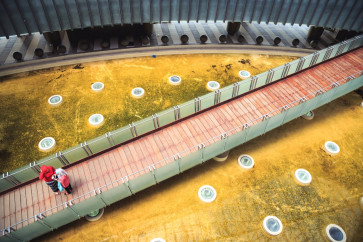Popular Reads
Top Results
Can't find what you're looking for?
View all search resultsPopular Reads
Top Results
Can't find what you're looking for?
View all search resultsSelf-criticism over sharia urgently needed in Aceh
An anticorruption NGO, MaTa, recently revealed there was widespread corruption in Aceh involving Rp 398 billion (US$28,199). As usual, this fact has not invited significant attention in Aceh, unlike issues of sharia.
Change text size
Gift Premium Articles
to Anyone
A
n anticorruption NGO, MaTa, recently revealed there was widespread corruption in Aceh involving Rp 398 billion (US$28,199). As usual, this fact has not invited significant attention in Aceh, unlike issues of sharia. It is through sharia that the ruling elite portray themselves as heroes and defenders of morality and righteousness. For example, one bylaw bans women from drinking near a man who is not their relative, one forbids women from straddling motorcycles and another obliges headscarves for female flight attendants for all airlines landing in Aceh. This shows rules are strict when it comes to women, sexuality and symbolic aspects, but they remain more lenient on more substantive issues related to the powerful.
There has hardly been any evaluation or criticism of this repetitive pattern. Despite arguments that the formalization of sharia in Aceh is a strategy and a product of political deals to reduce political conflict between Aceh and Jakarta, I am more interested in questioning how the ongoing implementation of sharia bylaws benefits Aceh’s ruling elite.
Sharia at the grassroots level seems to be disconnected from continued corrupt practices of the elite. As scholar Louis Althusser wrote, the ruling class manipulates mass perceptions and their worldviews through educational institutions, the media and religious institutions, which make up the “ideological state apparatus”. As a result, more urgent issues, such as corruption, are obscured, which benefits the political and economic interests of the ruling elite.
From 2008 to 2018, the Aceh government received special autonomy funds amounting to approximately Rp 65 trillion. Yet, Aceh remains Sumatra’s poorest province. In his 2009 article “Combatants to contractors: The political economy of peace in Aceh”, Indonesia expert Edward Aspinall explained how the new elites who emerged after the historic 2005 peace agreement between the Indonesian government and the Free Aceh Movement (GAM) controlled access to the province’s economy.
A decade after the publication of the article, Aceh has among the most cases of serious mental health disorders in Sumatra. Similarly, the stunting rate among children under 5 in Aceh is among the highest in the country, trailing only East Nusa Tenggara and West Sulawesi, according the latest national health figures.
Such health issues cannot be separated from Aceh’s high rate of unemployment and poverty. This also reinforces the fact that the autonomy funds have been concentrated only around Aceh’s elites.
What is missing in Aceh is criticism of sharia as it pertains to corrupt elites. Instead, defenders of sharia and organizations are often caught up in sectarian issues. Additionally, those with a relatively weak position in Aceh, such as women, transvestites and the poor, are disproportionally targeted. More urgent issues, such as increased violence against women and children, are not a main concern. Provincial data from the government’s Integrated Women’s and Children’s Center (P2TP2A) show almost 940 cases of abuse against women and children in 2015, 1,648 cases in 2016, 1,791 cases in 2017 and over 820 cases in early 2018; though the figures may indicate there are more people who have the courage to report cases or an increase in monitoring.


















